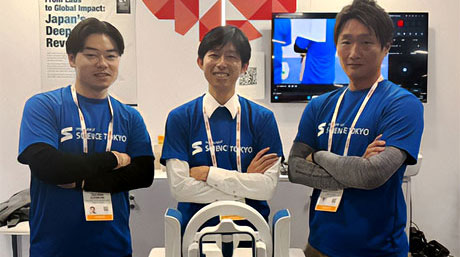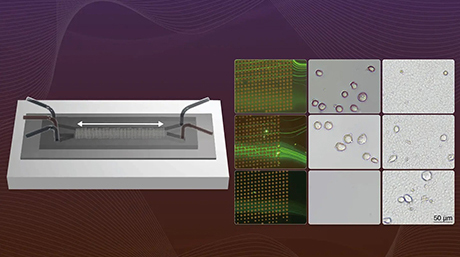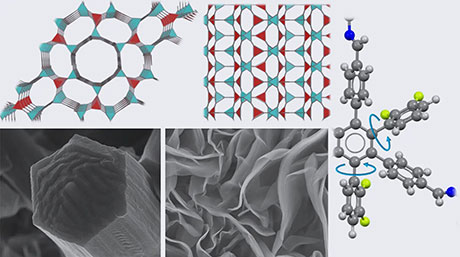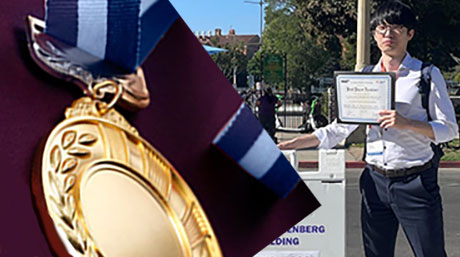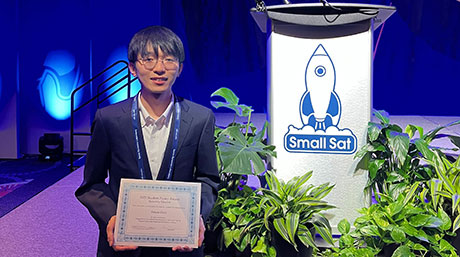Mechanical Engineering News
Sensing viruses by exploring their electrical properties: Continuous environmental monitoring for protection from virus threats
Our living sphere is exposed to a wide range of pathogenic viruses—some known and others of novel origin.
Currently, there is no method to continuously monitor the environment for viruses in general, and needless to say, a procedure for the rapid and sensitive identification of a wide variety of viruses for infectious diseases. Traditional approaches based on PCR and immunoassay only enable the detection of known viruses.
Now, Ryuji Hatsuki and colleagues at have developed a simple sensing methodology that can potentially detect any virus between the spacing of two electrodes with an intervening several hundreds nanometer-sized gap by measurement of electrical properties of viruses known as impedance spectroscopy.
The sensing device was fabricated on a quartz substrate patterned with two measurement electrodes of thin film of gold (250 nm thick) deposited on titanium (1 nm thick); a polydimethylsiloxane (PDMS) sheet forming the measurement chamber wall; and a glass plate as the chamber lid.
The researchers discovered that the impedance of three kinds of virus solutions—differing in shape and size—responded differently depending both on the kind of virus and its concentration.
Although further studies are required, the proposed method may achieve a sensitivity comparable to that of more traditional, but less versatile continuous virus detection methods, to monitor a wide range of environments for untroubled living conditions.
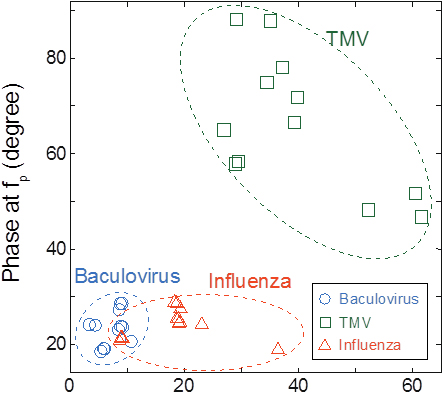
Figure. Cluster map of the detected viruses: Baculovirus, TMV, and influenza virus. The data were obtained for virus concentrations of 1011 to 1014 virions/mL
Reference
| Authors | Ryuji Hatsuki1, Ayae Honda2, Masayuki Kajitani3, Takatoki Yamamoto1 |
|---|---|
| Title of original paper | Nonlinear electrical impedance spectroscopy of viruses using very high electric fields created by nanogap electrodes |
| Journal | Frontiers in Microbiology, vol. 6, pp. 940-947 (2015). *open access journal |
| DOI | 10.3389/fmicb.2015.00940 |
| Affiliations | 1Tokyo Institute of Technology, Department of Mechanical and Control Engineering, Tokyo 152-8550, Japan 2Housei University, Faculty of Bioscience and Applied Chemistry, Tokyo, Japan 3Teikyo University, Department of Bioscience, Tochigi, Japan |
- Yoshino and Yamamoto Laboratory
- Researcher Profile | Tokyo Tech STAR Search - Takatoki Yamamoto
- Latest Research News
School of Engineering
—Creating New Industries and Advancing Civilization—
Information on School of Engineering inaugurated in April 2016
Further information
Associate Professor Takatoki Yamamoto
School of Engineering
Email yamamoto@mes.titech.ac.jp
Tel +81-3-5734-3182

